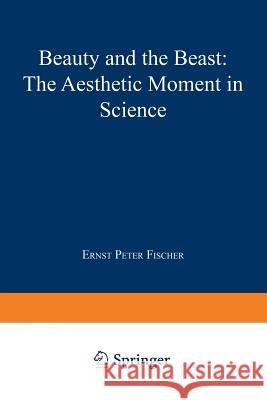Beauty and the Beast: The Aesthetic Moment in Science » książka
Beauty and the Beast: The Aesthetic Moment in Science
ISBN-13: 9780306460111 / Angielski / Miękka / 1999 / 202 str.
Beauty and Science. Where's the connection? Doesn't science have more to do with the quantifiable, the verifiable, and the applicable than with beauty?The relationship between scientific discovery and the pursuit of beauty has existed for centuries. In the earliest years of science these two concepts were inseparable. Beauty and truth walked hand in hand. Scientists used their instincts in determining the validity of their findings. An equation that "fell into place', or an object that was perfectly symmetrical, or an experiment with a pleasing result, because of its aesthetic appeal, was considered valid and true. However, with the advent of new technology and an emphasis on progress and product, the search for the beautiful science has slowly and tragically faded away.In this engaging treatise, BEAUTY AND THE BEAST: The Aesthetic Moment in Science, renowned science historian Dr. Ernst Peter Fischer puts forth a convincing appeal to both the general public and scientists, urging us to reconsider the way we arrive at the truth in science. Encouraging us to approach science with all our senses, Fischer posits a universal aesthetic sense that spurs our imagination and leads us to profound revelations about human and cosmic nature. Fischer delves into the lives of major thinkers and scientists from Bacon to Watson and Crick, pinpointing how they have been guided by their instinct and individual sense of beauty in the pursuit of knowledge. Showing how the aesthetic delights of thought, analysis, research, and discovery are leading the components of the scientific mind and process, he examines everything from snowflakes to the overall makeup of the space-time continuum. He explores these concepts and others including the golden mean, evolution, symmetry in nature, as well as imaginary numbers and irrationality as proof of beauty in science. He presents truth as a state of beauty--and beauty as the embodiment of truth. BEAUTY AND THE BEAST is an absorbing and poignant discussion of the relationship between scientific achievement and the notion of beauty and harmony, guaranteed to appeal to lay people and scientists alike. It stirs the senses and implores us to expand our vision of reality--to use all the senses, not just our rational intellect in determining the truth behind scientific discovery.











